Definitely a must if you are going to visit Bhutan! “Immerse yourself in Bhutanese Food and Hospitality” is a themed attraction that lets travelers experience the heart and soul of Bhutan through its food and warm hospitality. So let us tell you about some such interesting Bhutanese hospitality traditions which will inspire you to come again and again.
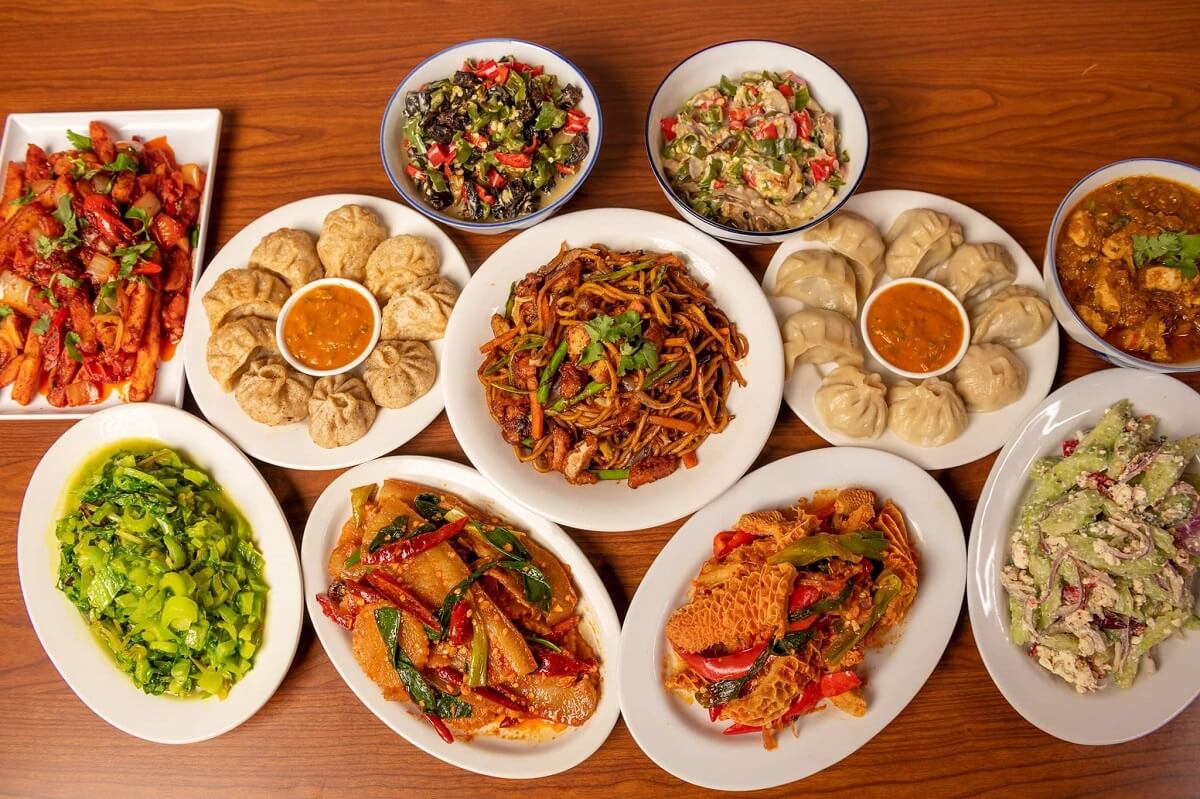
Introduction to Bhutanese Cuisine:
Bhutanese cuisine is a reflection of the country’s unique cultural heritage and geographical diversity. It is characterized by the use of locally sourced ingredients, traditional cooking techniques and distinctive flavours. The staple food of Bhutan is red rice, accompanied by a variety of dishes including vegetables, dairy products and meat.
Traditional Bhutanese Cuisine:
Dive into the world of traditional Bhutanese cuisine, including iconic favorites like:
– Ema Datshi: A spicy dish made of chilli and cheese, considered the national dish of Bhutan.

– Momos: Momos are delectable dumplings filled with a savory mixture of meat or vegetables, typically accompanied by a flavorful dipping sauce.
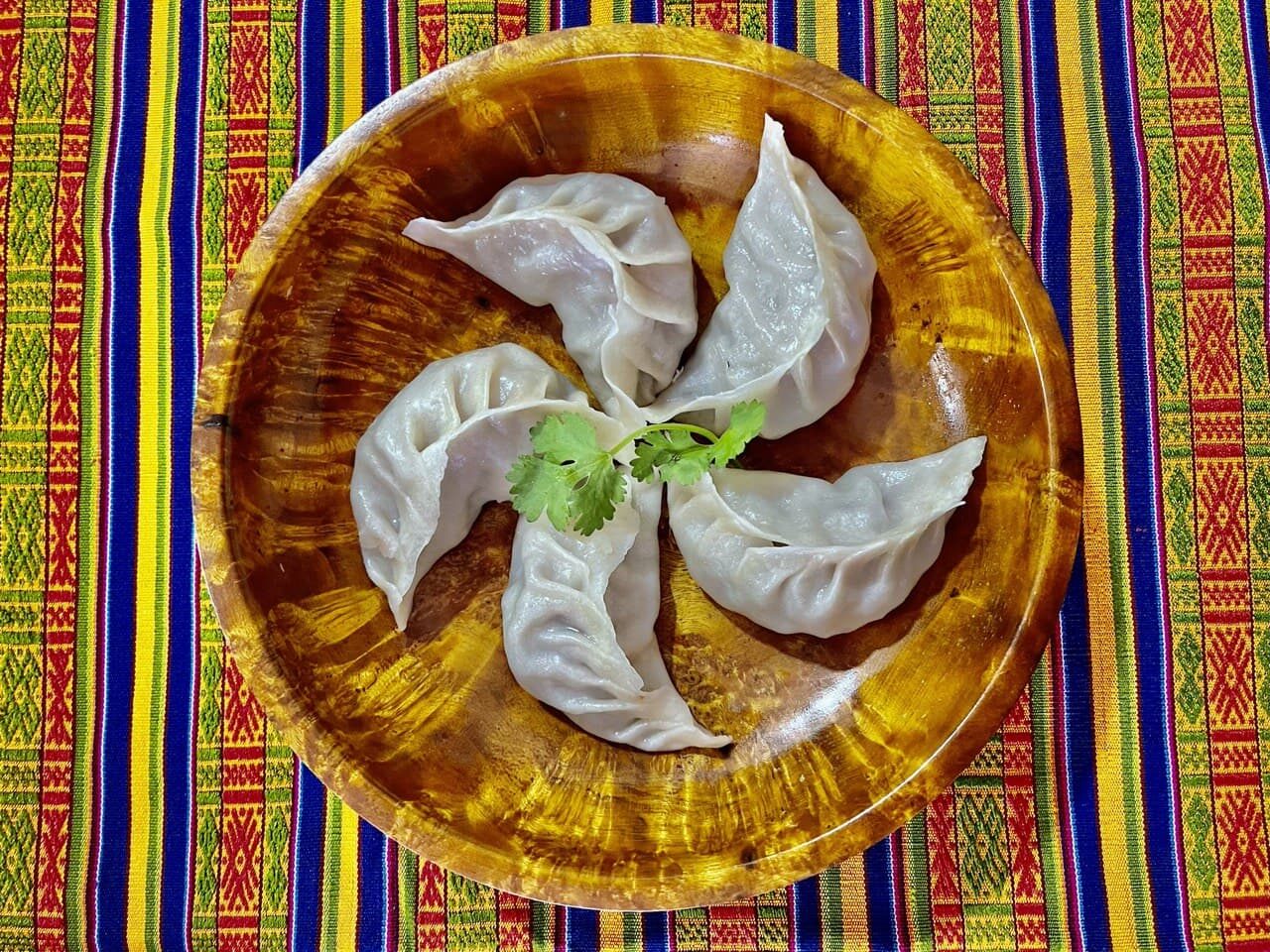
– Datsi Keva: A hearty stew made of potatoes and cheese.

– Phaksha Pa: Spicy pork cooked with radish or turnip, a popular dish in Bhutanese households.
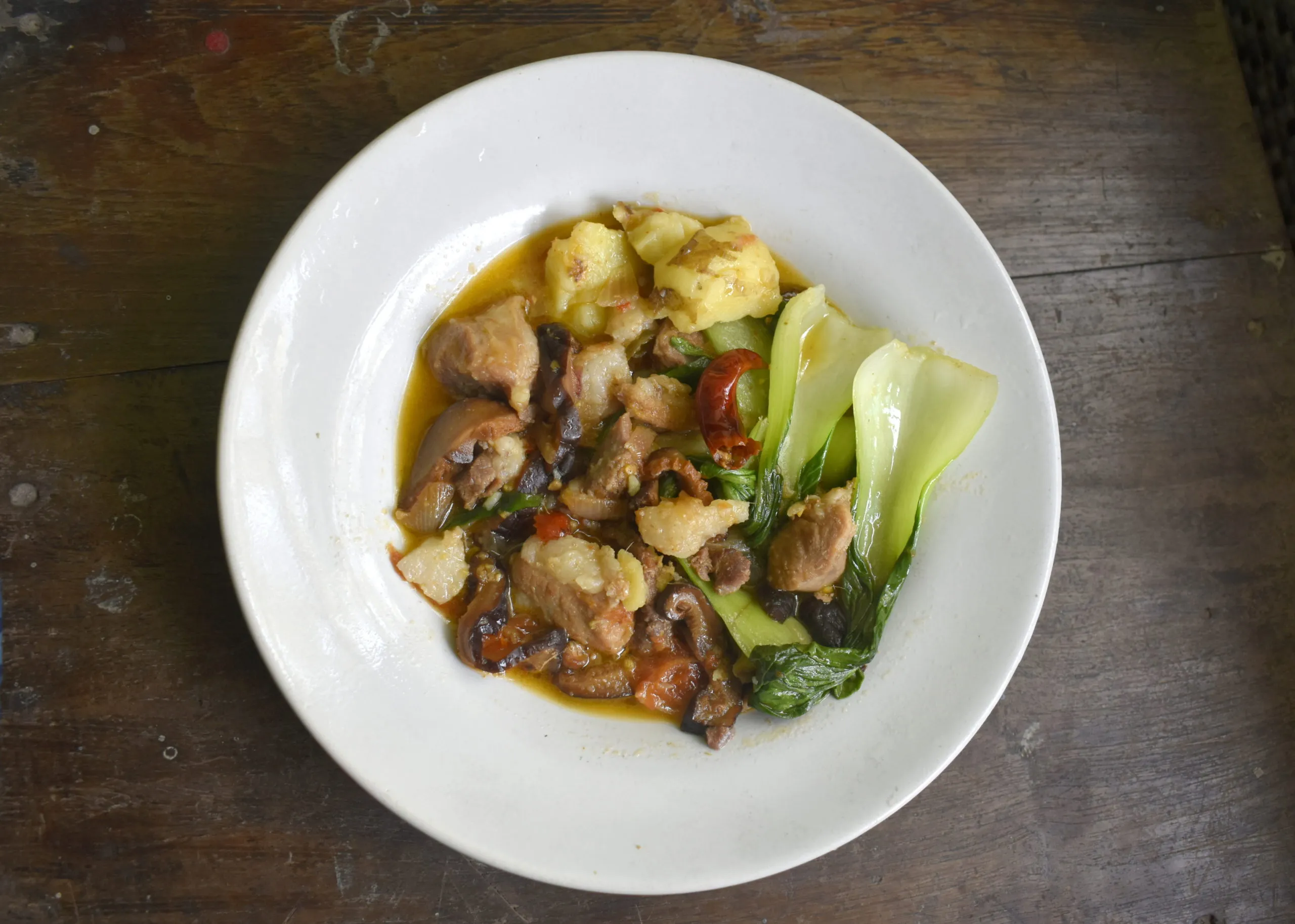
– Suja: Butter tea, a staple beverage of Bhutan, is served hot and enjoyed for its warming properties.
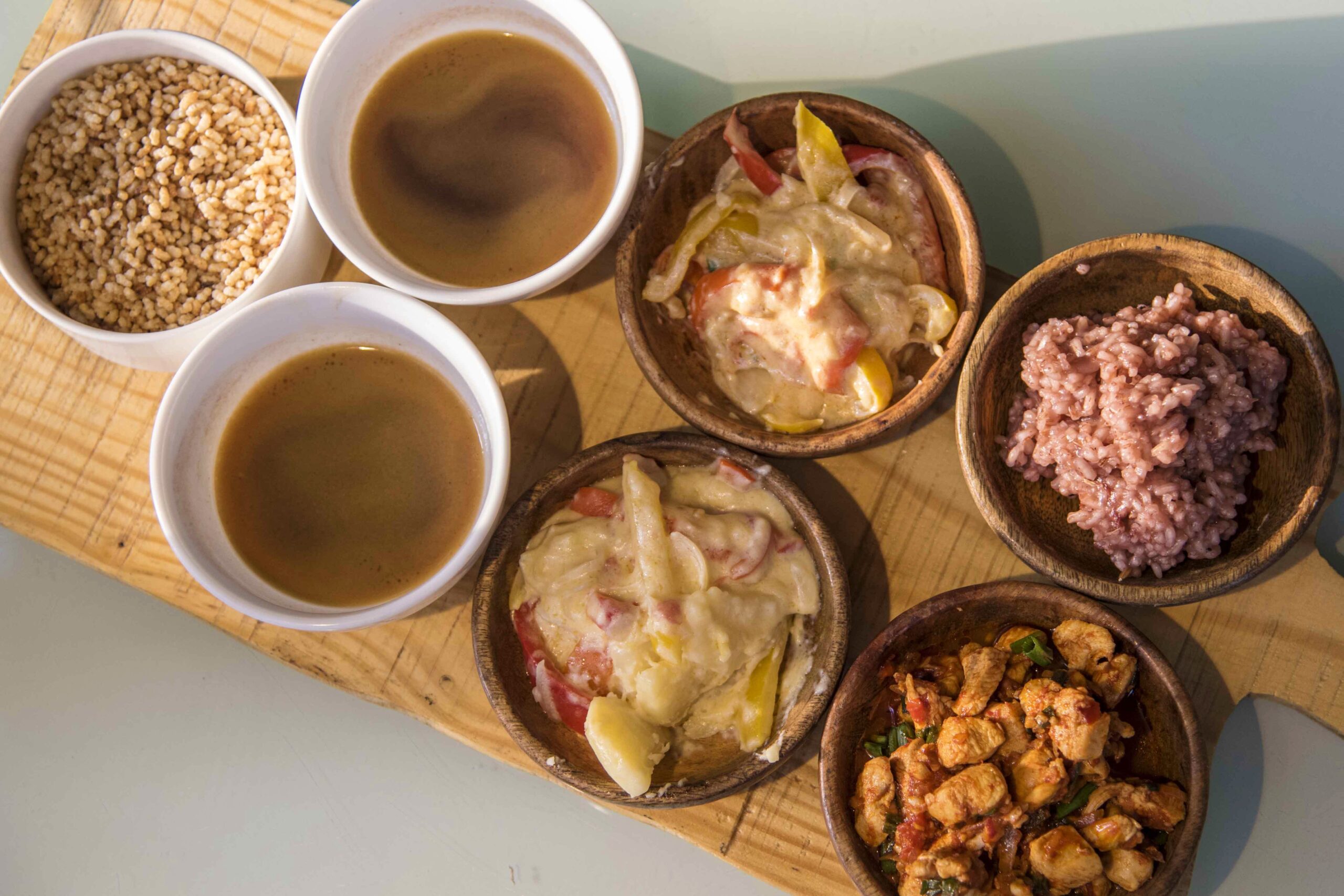
Farm-to-Table Dining Experience:
Highlight the concept of farm-to-table dining in Bhutan, where restaurants prioritize using fresh, locally sourced ingredients. Discuss the importance of supporting sustainable agriculture and promoting traditional farming practices in the culinary landscape of Bhutan.
Hospitality in Bhutan:
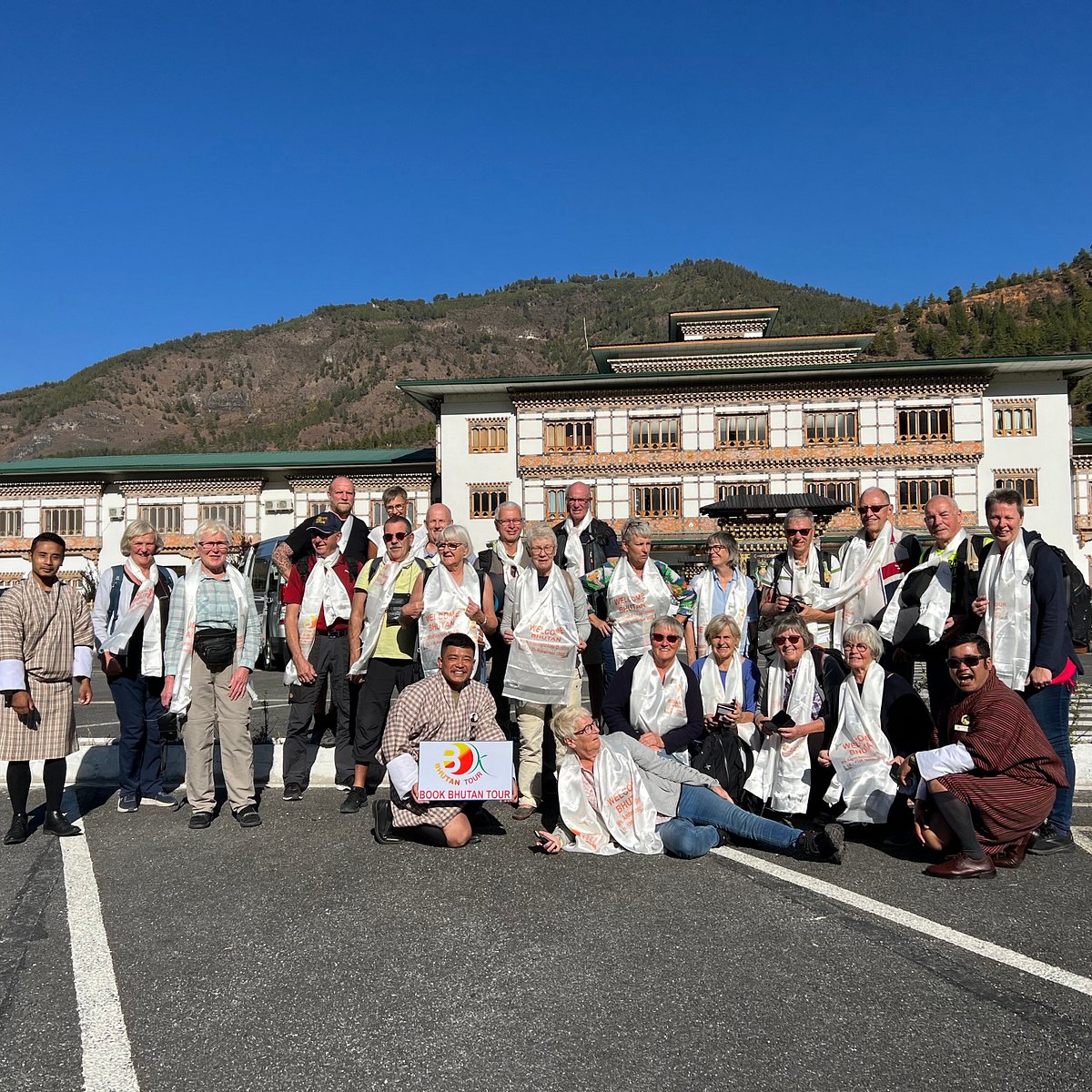
Discover the warm hospitality that awaits travelers in Bhutan, where local homestays and guesthouses welcome guests with open arms. Discuss the concept of “Atithi Devo Bhava” (Guest is God), which emphasizes the importance of treating visitors with utmost respect and care.
Homestay Experience:
Describe the unique opportunity for travelers to stay with Bhutanese families in traditional farmhouses or guesthouses. Discuss the immersive nature of homestay experiences, where guests can participate in daily activities such as cooking meals, caring for animals, and learning first-hand about Bhutanese customs and traditions.
Culinary Tours and Cooking Classes:
Highlight the availability of culinary tours and cooking classes in Bhutan, where travelers can learn to prepare traditional Bhutanese dishes under the guidance of experienced chefs. Discuss the practical nature of these experiences and the opportunity they provide for cultural exchange and interaction with local people.
conclusion:
Emphasize the importance of immersing yourself in Bhutanese cuisine and hospitality as a means to truly understand and appreciate the country’s culture and lifestyle. Encourage travelers to look forward to the culinary delights and warm welcome awaiting them in the Land of the Thunder Dragon.

